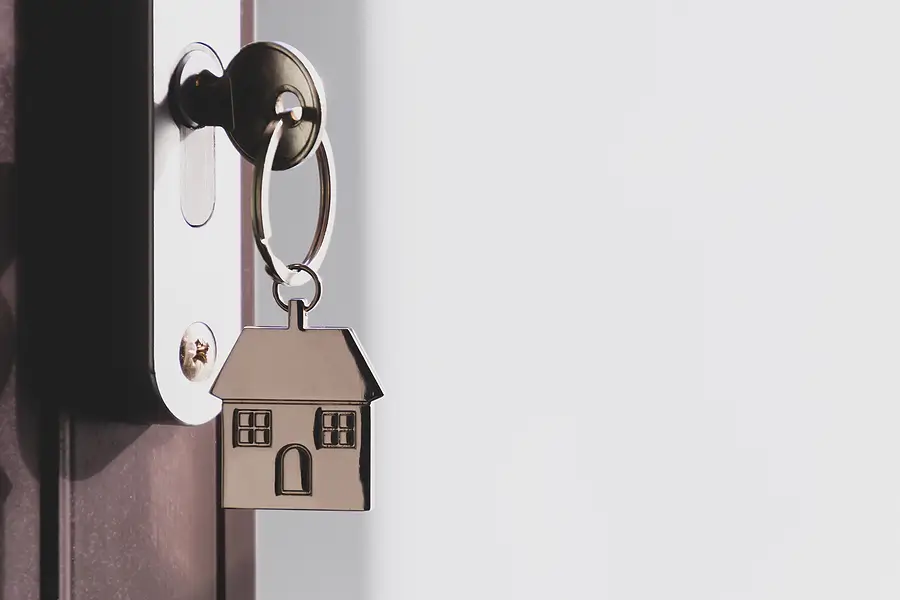Deciding whether to rent out or sell your home is a major financial decision. Both options have advantages and challenges depending on your financial goals, the housing market, and your future housing plans. Before making a choice, consider the benefits and challenges of each approach to determine what works best for your situation.
The Pros and Cons of Renting Your Home
Pros:
Generate Passive Income
Owning a rental property provides a stable income through monthly rent payments. This income can help cover mortgage payments, property taxes, and regular maintenance expenses while also building long-term financial security.
Build Equity Over Time
Renting out your home allows you to keep the property’s mortgage intact while benefiting from asset appreciation. Over time, this can increase your net worth and make the house a valuable long-term investment.
Tax Benefits
You may qualify for valuable tax deductions, including property management fees, mortgage interest, legal costs, and maintenance expenses. These deductions can help reduce taxable income and improve overall profitability.
Flexibility for Future Plans
Renting your home allows you to move back in later or sell when market conditions are more favorable. This flexibility can be beneficial if you're relocating temporarily or waiting for property values to rise.
Cons:
Landlord Responsibilities
As a landlord, you are responsible for handling tenant concerns, scheduling maintenance, collecting rent, and keeping financial records. These tasks can be demanding, especially if you manage the property on your own.
Market Risks
Rental prices fluctuate based on demand, local economic conditions, and competition. Unexpected vacancies or declining rental rates can impact income, so it's essential to plan for potential financial challenges.
Management Challenges
Overseeing a rental without a property manager can be time-consuming. Screening tenants, handling lease agreements, responding to maintenance requests, and dealing with potential disputes all require time and effort.
Legal and Financial Risks
Being a landlord can involve potential legal and financial risks, including evictions, legal fees, and unpaid rent. Understanding landlord-tenant laws and having a solid lease agreement can help mitigate these risks.
The Pros and Cons of Selling Your Home
Pros:
Immediate Cash Flow
Selling your home provides a big sum of cash, which can be used for a down payment on another property, invested elsewhere, or saved for future financial goals. This liquidity can be especially beneficial if you need quick access to funds.
Avoid Landlord Responsibilities
By selling your home, you eliminate the challenges of property management, including tenant screening, maintenance, and rent collection. This is ideal for homeowners who prefer a hassle-free transition.
Take Advantage of a Strong Market
If home values are high and demand is strong, selling can allow you to maximize your profits. A competitive market may lead to multiple offers, increasing your final sale price.
Less Risk of Market Downturns
Owning a rental property means exposure to market fluctuations. Selling allows you to cash out at a favorable time, avoiding potential declines in property value or rental demand.
Cons:
Potential Capital Gains Tax
You may be subject to capital gains tax if you sell your home for a profit. However, certain exemptions may apply depending on how long you’ve lived in the property and other tax regulations.
Lost Long-Term Equity Growth
Real estate generally appreciates over time. By selling, you forfeit the potential for future property value increases, which could result in lost wealth-building opportunities.
No Ongoing Income
Unlike renting, selling a property eliminates the possibility of earning passive income from monthly rent payments. If financial stability through consistent cash flow is a priority, renting may be the better option.
How a Property Management Company Can Help
Hiring a property management company is an excellent option if you choose to rent your home but want to avoid daily responsibilities. Residential property managers manage properties by handling rent collection, tenant screening, maintenance, and financial reporting. They also help set competitive rent prices based on similar properties in your area, ensuring maximum rental income.
Let Stutts Properties, Inc. Handle Your Property
Selling may be the best option if you need immediate funds or prefer not to deal with tenants. However, if you want to earn income and build equity, renting is a wise choice, especially if you work with a professional property management company to simplify operations.
At Stutts Properties, we specialize in helping rental property owners like you manage rental properties efficiently. Whether you want to rent out or sell your home, we provide expert guidance to help you make the best decision. Contact us today to see how we can help you.


